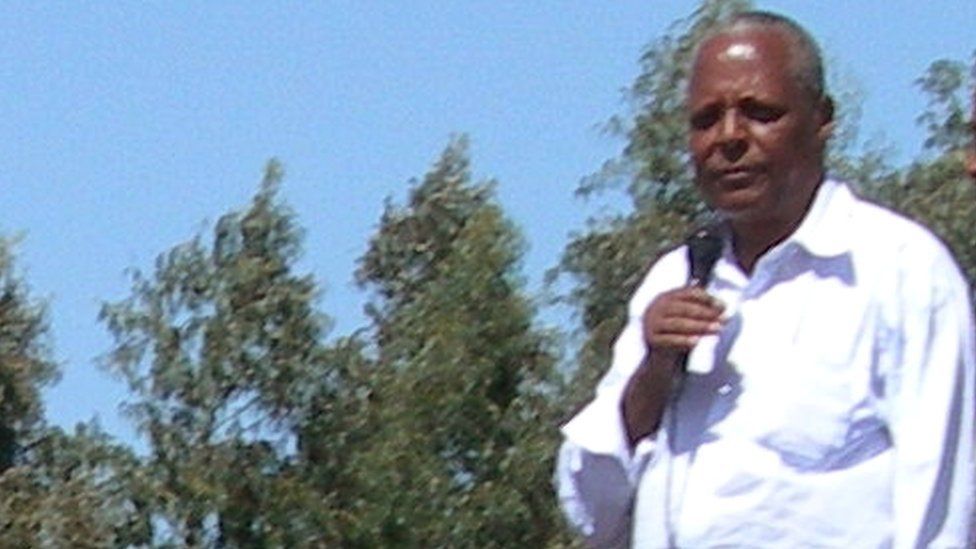Ethiopia's Merera Gudina detained after trip to Europe
- Published

A prominent opposition leader in Ethiopia has been detained after he returned from Europe.
Merera Gudina had violated Ethiopia's state of emergency by having contact with "terrorist" and "anti-peace" groups, state-linked media reported.
Mr Merera criticised the state of emergency in an address to the European parliament on 9 November.
The government imposed it in October to end an unprecedented wave of protests against its 25-year rule.
More than 11,000 people have since been arrested.
Mr Merera, who is the leader of the Oromo Federalist Conference, was arrested on Wednesday at the airport in the capital, Addis Ababa, after he flew in from Brussels, reports BBC Ethiopia correspondent Emmanuel Igunza.
Several of his relatives who were with him were also detained, local media report.
European parliament member Ana Maria Gomes, who invited Mr Merera, told the BBC she was "extremely shocked" about the arrests.
She said she would push for the European Union take a tougher line against the Ethiopian government.
Mr Merera has previously criticised the arrests of hundreds of people from the Oromo and Amhara ethnic groups, which were at the forefront of anti-government protests.
The meeting at the European parliament was also attended by Ethiopia's Olympic medallist Feyisa Lilesa.
He refused to return home after the Rio Games, saying his life would be in danger.
The marathon runner crossed the line in second place with his arms above his head in solidarity with Oromo activists.
Mr Merera had served seven years in prison for opposing the former regime of Mengistu Haile Mariam.
He also took part in the overthrow of Ethiopia's last emperor, Haile Selassie.
Many people in the Oromo and Amhara ethnics groups, two of the largest in Ethiopia, complain of political and economic marginalisation.
- Published7 October 2016
- Published22 August 2016
- Published26 August 2016
- Published9 March 2016
- Published18 January 2016